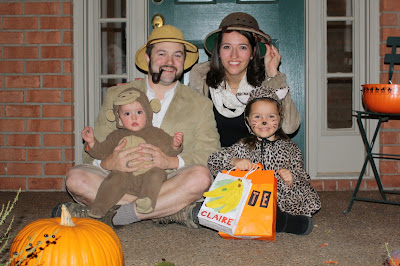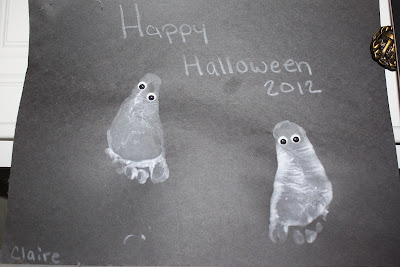In honor of Clergy Appreciation Month (October, if you weren't aware) Ministry Matters is doing a blog tour and link-up in which pastors and others share about a "minister who mattered" to them. We've got Mike Slaughter, Jessica LaGrone, Max Lucado, Adam Hamilton, Matthew Paul Turner, Grace Biskie, and others blogging over Oct. 1-14, and everyone is invited to participate. What a great way to honor someone who made a difference in your faith and life! Check it out and link up at
MinistryMatters.com/blogtour.
I've known a lot of great ministers in my time—from my home church, family friends, and now various friends and colleagues, and of course, my husband! But the person who stands out in my mind is not ordained clergy at all. You don't have to be a pastor to be a minister, remember. Arguably the person who had the greatest impact on my faith journey was one of my religion professors at Furman University, Dr. Albert Blackwell.
Sometimes, when Christian kids are headed off to college, they are warned to guard their faith, to be wary of those evil, atheist professors who will try to educate their faith out of them. That's a bit of a caricature, of course, and I don't recall a specific warning of that nature from my very moderate faith community growing up—but I do recall that, even though I entered college with the thought of youth ministry as a possible career, I avoided taking religion classes my first semester. Maybe even my whole first year. "Academic study of religion" had a bad rap in some circles, since such classes would expose a person to views of the Bible and theology beyond the "party line" of whatever organization was doing the warning.
Once I started my religion classes, though, I found my whole world enlivened with deeper understanding of the cultures from which the Bible emerged. I was excited by theological discussions, the way different people or groups of people had different ideas about God, influenced by their context and life experience. I recall the exhilarating session of Religion in America with Dr. Helen Lee Turner when we watched a documentary about the ideological shift of the Southern Baptist Convention in the early 1980s and I knew that I wanted to study evangelical and fundamentalist movements in American church history. (And that's what I indeed focused on during my M.T.S. studies at Vanderbilt!)
The religion department at Furman (perhaps unlike many other universities) was full of professors whose faith was part-and-parcel with their scholarship, whose work was fueled by a love for the church and a desire to see it better reflect the God it serves. Dr. Blackwell was no exception to that, but he was exceptional nonetheless. Tall and distinguished, he embodied an unpretentious commitment to Christ and the Christian life. When I picture him, I see him standing at the front of the classroom, a long torso with belt exactly halfway between the soles of his shoes and the crown of his head, feet planted as if thick, tangled roots connected him deep and wide to the source of the wisdom he spoke.
Classes were conducted in-the-round, encouraging discussion of the texts we'd read for the day. I was at first intimidated to speak up, feeling like whatever I said was shallow or unsubstantiated, but one day I made some sort of semi-insightful comment (I don't even remember what it was) and he responded by taking a lollipop out of his shirt pocket and presenting it to me with subtle fanfare and affirmation that gave me confidence to engage further in the class.
His career in religion began when, while finishing his degree in physics at M.I.T., he attended a lecture by theologian Paul Tillich, and decided to pursue graduate work in theology at Harvard Divinity School. With this background in science and math, and a love of music, Dr. Blackwell saw the divine element in all areas of life. Furman was not a publish-or-perish environment, so it is fitting that Dr. Blackwell's most recent book is 1999's
The Sacred in Music. He directed the choir at his church and was working with his wife to compose new tunes for the Psalms, I recall. (I see online now he has
choral anthems available for free use by churches.) He drew some mathematical formula on the board in class once, and being math-dumb as I am, it was completely over my head, but I recall the lesson was something about how infinity—The Infinite—changes everything.
Dr. Blackwell opened my eyes to Jesus' mandate that we serve the poor and work for justice. My politics did shift in college, as many people's do, but directly as a result of deeper engagement with Jesus' gospel. Dr. Blackwell often used the term "liberality of love" to describe the all-encompassing generosity with which Christ calls us
to live our lives. "Liberal" was a dirty word in my house growing up, mainly equated with
permissiveness. Rather than a synonym for
libertine, I came
to understand "liberal" in the same sense a recipe would call for "a
liberal amount of vanilla." It's about generosity, compassion, and love for humanity.
Dr. Blackwell's teaching—nay, ministry—had an incalculable impact on my path in adulthood. He contributed to the passion for studying American religion and culture, with which I headed off to grad school and planned to become a professor myself. (My eventual decision not to pursue a Ph.D. is a post for another day!) He instilled in me concern and compassion for the poor that has transformed my Christian life and hopefully will continue to shape all I do. Not least, he also gave me a new set of eyes to see God's presence in the world around me. God didn't just make the trees and the animals—he made the particles and forces that make electricity work. He made all the stuff that is in steel and medicine and everything else that we think of as man-made. His hand is in it all. (This has come to mind a lot recently as Kate learned in school recently how "God made everything," and she comes to me with a random object like a plastic kitchen strainer, asking "Why are there holes in it? Is that how God made it?" Hmmm...)
As I wrote my final exam for Dr. Blackwell's Religious Approaches to Meaning class my last semester of college, I was surprised/amused to find I'd essentially written the same essay for both exam questions. I don't recall the questions, but my answers were both focused on the "middle way," a way of living that keeps a hand on earth and an eye on heaven. The "approaches to meaning" that were too earth-focused were devoid of eternal significance, and those that were based in spiritual ecstasy were "no earthly good," as the saying goes.
I handed in my paper and told Dr. Blackwell how both questions led me to the same answer. He responded sagely, "Perhaps you've discovered the grain of the universe." Indeed; it is more or less my version of the meaning of life, which I tend to summarize with the title refrain from Chris Rice's album "Run the earth and watch the sky."
I'd say Dr. Blackwell is an earth-runner-sky-watcher as well. He strives to make an impact here on earth, investing in the lives of countless students and working for justice through various ministries, always with God in his heart, Christ as his guide.
I was honored to be part of Dr. Blackwell's retirement festivities in 2004, the year after I graduated. The day included a panel on religion and social justice with several of Dr. Blackwell's former students, from class of 1973 to class of 2003 (me), and a musical concert that evening. The only photo I could find beyond the web-stolen one above was, of course, on the page in my scrapbook about the event. Those were the days before my digital camera (and, apparently, before lipstick and eyeliner :0) The little photo to the right was in the Furman alumni magazine, of Dr. Blackwell at the 2003 Commencement, holding a little sign that wished "Godspeed!" to the graduates processing by.
Godspeed to you, Dr. Blackwell. Thank you for your influence on my life and those of so many others. Your ministry matters!
__________________________________________
Blog about someone who made a difference to you and link up at
MinistryMatters.com/blogtour, any time before Oct. 14.

















































